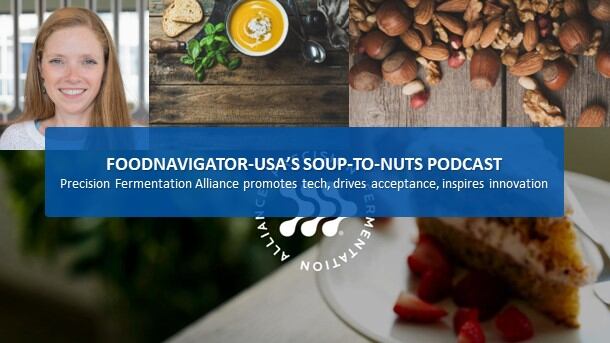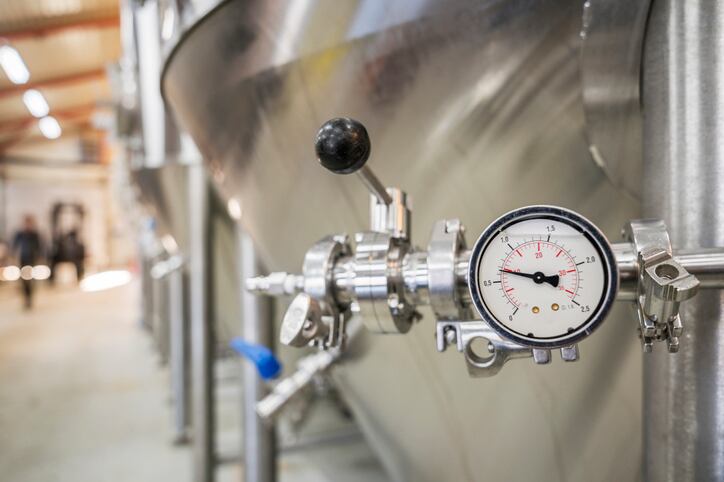With the debut of the company's LF+ last month at Future Food Tech in San Francisco, TurtleTree promises to democratize one of the most highly-prized multifunctional milk proteins by using precision fermentation to make an animal-free, but otherwise identical, version of lactoferrin readily available at a significantly lower price point than its bovine equivalent.
“Lactoferrin is a dairy bioactive in milk from all different species, including cow’s milk. It is part of the essential bioactive components of milk that help people thrive. So, milk is absolutely jam-packed with lots of nutrients that help support early development andlife and growth. But it also contains these proteins that have evolved to be multifunctional, and support immunity and gut health and iron regulation. Lactoferrin is one of these amazing proteins that has all these different functions to support how we thrive and grow,” Aletta Schnitzler, chief scientific officer at TurtleTree, told FoodNavigator-USA.
But, she added, “presently, because lactoferrin is a scarce molecule, about 80% of it goes into infant nutrition, and rightfully so – that is probably the most important population to be able to access lactoferrin. But now, with precision fermentation, we are looking to expand the markets into adult nutrition.”
She explained that thanks to the genome sequencing efforts decades ago, the DNA of many species – human, cows, plants and animals – have been sequenced, allowing TurtleTree and others to have the genetic code to many proteins, including bovine lactoferrin.
By using precision fermentation, TurtleTree is “taking the genetic code from the cow that instructs the cell how to make lactoferrin [and putting] it into a microbe, like yeast, so then we can culture it – just like you would in a brewery – and have that yeast secrete lactoferrin into the broth, where we can then purify it,” Schnitzler said.
“That process is very scalable and those technologies are in place, and so we can basically provide this animal origin free source of lactoferrin that we call LF+ to many, many different markets,” she added.
From plant-based to pasteurized dairy LF+ has wide appeal
Among the key markets where Schnitzler said LF+ can add significant value is plant-based milk, which has come under fire for lacking the nutritional benefits cow’s milk.
“Now we can start supplementing and augmenting the nutritional benefits of plant-based foods and beverages with recombinant proteins, like lactoferrin, like LF+,” she said.
It can also be used to fortify dairy products, including conventional milk, which when pasteurized loses about 50% of the naturally occurring protein, including lactoferrin, she said.
Sports nutrition is another area where TurtleTree sees potential benefit from the protein’s iron-regulating capabilities, which could improve physical performance by aiding endurance, fatigue resistance, muscle strength and energy efficiency.
Extremely versatile, LF+ has few limitations, although companies need to consider heat stability and pH, said Schnitzler. But, she added, because precision fermentation is an aseptic process, LF+ comes off the line “essentially sterile” and can be introduced to foods post-pasturization.
LF+ offers substantial cost savings
On the business side, LF+ is significantly less expensive to concentrate than its bovine equivalent, Schnitzler said.
“Lactoferrin presently trades at around $750 to $1,500 per kilogram, which is much, much more than caseins and whey that are also being made through precision fermentation techniques. … So, just about out of the gate, we are going to have a healthy profit margin that will only go up as we continue to optimize our strain in our process,” she said.
This price-gap reflects the significant resources needed to extract bovine lactoferrin, which requires upwards of 10,000 liters of milk for just 1 kilogram of purified lactoferrin. This also underscores the sustainability benefits of TurtleTree’s LF+.
Samples available soon
Commercial scale amounts of LF+ likely won’t be available until next year, but the company should have samples available by the end of the year.
“We are presently going through our pilot runs for our FDA dossier, or regulatory approval, and all of that should be in place by the end of the year,” at which point TurtleTree can be scaling to commercially relevant quantities that could be available next year, Schnitzler said.
But, she added, limited supply will be available by the end of this year for focusing and product innovation or testing.



